

Program in Ecology and Evolution
Interdisciplinary Program
Debbie Swierczek, Program Coordinator
School of Graduate Education
Knight Hall 247
Phone: 307-766-4128
Email: ecology@uwyo.edu
Program in Ecology and Evolution Faculty & Emeritus represent many different departments and offer diverse expertise and interests, but all share a core commitment to research and graduate training in ecology. All students enrolled in PiEE are advised or co-advised by a PiEE Faculty member.
>>Information on becoming a Program in Ecology and Evolution faculty member
>> Sort faculty by research focus
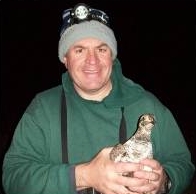
Professor, Department of Ecosystem Science and Management
E-mail: jlbeck@uwyo.edu | Web Page
Students: Jonathan Lautenbach
Alumni: Clay Buchanan, Courtney Duchardt, Aaron Pratt, Kurt Smith,
Top of Page
My research interests lie in wildlife habitat ecology and restoration ecology with
a focus on restoring the functionality and structure of wildlife habitats in disturbed
rangeland systems, particularly sagebrush habitats. The types of research questions
that my lab addresses typically are guided by ecological concepts that are used as
a framework to evaluate conservation questions. Two general areas of emphasis that
my lab is pursuing are: (1) understanding the direct and indirect impacts of anthropogenic
development on vertebrate species (greater sage-grouse and ungulates as model taxa)
inhabiting sagebrush habitats, and (2) evaluating the efficacy of mitigation techniques
and conservation practices intended to enhance habitat conditions or mitigate effects
of anthropogenic development in sagebrush habitats. In all studies we seek to understand
responses of habitat restoration efforts across a range of spatial and temporal scales
to better inform conservation practices.
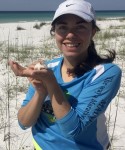
Assistant Professor, Department of Zoology and Physiology
Email: anelso74@uwyo.edu | Web Page
Students:
The Bedford Lab works at the intersection of evolutionary biology and systems neuroscience to understand the genetic and neural basis of behavior. As a model neural circuit, we use voluntary micturition, or the decision of when and where to urinate. Micturition is an essential physiological process that expels waste and maintains water balance, but many species also use urine marks as a form of social communication. Both laboratory and wild mice show considerable natural variation in aggression, territoriality, and scent marking behavior. We combine laboratory and field studies to uncover how differences in micturition arise both within and among species.
Professor, Department of Zoology and Physiology
E-mail: bendavid@uwyo.edu | Web Page
Students: Braden Godwin, Christina Sluka
Alumni: Adi Barocas, Jamie Crait, Carolyn Eckrich, Kristina Harkins, Eric Quallen, John
Whiteman
Top of Page
My main interest revolves around the interaction between animal behavioral ecology,
population dynamics, and ecosystem function. I mainly study carnivores and use the
transport of nutrient from sea to land as a model system. To study those interactions,
I use isotopic and genetic tracers. For example, I investigate the effects of trade-off
between nutritional requirements and risk of infanticide on consumption of salmon
by female brown bears, and how female decisions made based on this trade-off influence
the transfer of salmon-derived nutrients to terrestrial vegetation.
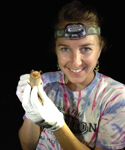
Assistant Professor, Department of Zoology and Physiology
E-mail: rbernar5@uwyo.edu | Web Page
Student: Renee Lile
Alumni:
Is an applied wildlife ecologist and Assistant Professor in the Department of Zoology and Physiology at the University of Wyoming. Her research focuses on the ecology and behavior of small mammals and amphibians on topics such as foraging, competition, invasive species interactions, the effects of disease on community structure, species susceptibility and survival. She also uses tools from Decision Science to ensure the questions she seeks to answer provide the best information for wildlife and natural resource managers to make tractable and robust decisions.
Has conducted research in a number of countries, including Australia, Costa Rica, Cambodia, Puerto Rico, and throughout the United States.
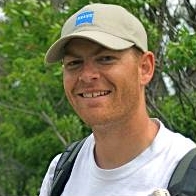
Associate Professor, Department of Zoology and Physiology
E-mail: mcarling@uwyo.edu | Web Page
Students: Libby Megna
Alumni: Shawn Billerman, Paul Dougherty
Top of Page
Research in my lab focuses on understanding the processes of speciation and adaptation
in birds. While we focus primarily on these questions from a genetic perspective,
we must also consider the environments inhabited by the birds we study. Current projects
include: 1) a detailed dissection of gene flow and introgression across the hybrid
zone between Lazuli (Passerina ameona) and Indigo (Passerina cyanea) buntings; 2)
a broad comparative hybrid zone study focusing on a number of avian species pairs
that hybridize in the Great Plains (e.g. Passerina buntings, Icterus orioles, and
Pipilo towhees); 3) patterns of functional differentiation in Tachycineta swallows;
and 4) a investigation of the impact of extreme environments (high elevation, high
latitude) on the evolution of mitochondrial genes.
 Associate Professor, Department of Zoology and Physiology
Associate Professor, Department of Zoology and Physiology
Wyoming Cooperative Fish & Wildlife Research Unit
E-mail: achalfou@uwyo.edu | Web Page
Students: Emily Shertzer
Alumni: Gabriel Barrile, Jason Carlisle, Katherine Gura, Embere Hall
Top of Page
I study wildlife-habitat relationships and the ecological, behavioral, and evolutionary
processes underlying patterns in habitat use and quality at multiple spatial scales.
My lab is currently focused on the influence of anthropogenic changes to habitats
(e.g., via oil and natural gas extraction) on non-game wildlife species including
songbirds, small mammals and herpetofauna, especially within sagebrush systems. My
work has also focused on broad scale life history patterns and avian parental care
behaviors.
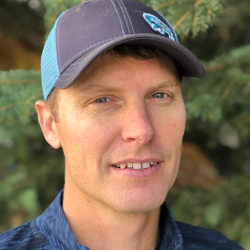 Associate Professor, Departments of Ecosystem Science and Management
Associate Professor, Departments of Ecosystem Science and Management
Email: david.christianson@uwyo.edu
Students: Laura Diakiw, Jeffrey Wagner
I explore the interaction between top-down, bottom-up, and environmental effects on individuals, populations, communities and ecosystems to better understand our world, provide better answers to stakeholders, and to train the next generation of thinkers and problem-solvers.
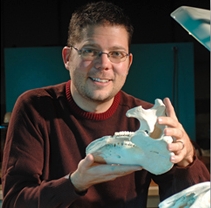
Professor, Department of Geology and Geophysics
E-mail: mclemen1@uwyo.edu | Web Page
Alumni: Morgan Churchill
Top of Page
My research interests center on understanding the ecological relationships among organisms
within ancient ecosystems. For the past several years, I have been particularly interested
in the study of the evolutionary ecology of marine mammals including sirenians (e.g.,
manatees, dugongs) and cetaceans (e.g., whales, dolphins, porpoises). The primary
tools I use for this research are stable isotope analyses of the inorganic and organic
fraction of fossil remains, which can provide information on the diet and habitat
preferences of extinct organisms that might not be interpretable from the morphology
or depositional setting. Recently, an increasing component of my research has included
work in modern marine and terrestrial ecosystems as a means of testing interpretations
of geochemical results from fossil remains. Two examples of these projects include
a long term study of the feeding habits of manatees in the Indian River Lagoon of
Florida and analysis of lifetime feeding habits and nutritional ecology of desert
tortoises in the Sonoran and Mojave Deserts with colleagues at the Smithsonian National
Zoological Park.
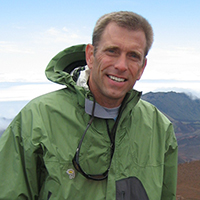
Associate Professor, Department of Ecosystem Science and Management
E-mail: tcollier@uwyo.edu | Web Page
Students: Alexis Hollander, Megan Wilson
Alumni: Rebecca Upjohn
Top of Page
My research encompasses the theoretical and applied aspects of insect ecology and
biological control, the use of living organisms to control insect pests and weeds.
A current research focus is the behavioral and population ecology of host specificity
in insects used as weed biological control agents. The primary question is: what behavioral
and ecological factors influence host specificity and impact of biological control
agents in the field? The key goal is to maximize impact on the weed and minimize impact
on native, non-target species. A second area of research involves interactions among
parasitoid wasps used in biological control of Hawaiian fruit fly pests. Here the
key issue is coexistence of competing species, and direct and indirect interactions
in parasitoid-host food webs.

Associate Professor, Departments of Zoology and Physiology
Email: sarah.collins@uwyo.edu | Web Page
Students: Linnea Rock
Research in my lab focuses on freshwater ecosystem ecology, including elemental cycling, food web dynamics and their relevance to applied water quality issues. We ask questions about ecological patterns and processes through field studies in a variety of temperate and tropical ecosystems. In addition to field projects, I participate in several synthesis groups about freshwater ecosystems at regional to continental scales, which include collaborations with computer scientists and statisticians. Overall, work in my lab aims to develop the approaches and concepts to understand how accelerating human-driven changes in terrestrial landscapes and climate are reflected in aquatic ecosystems at local to continental scales.
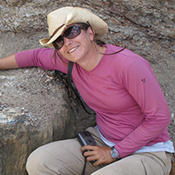
Professor, Departments of Botany and Geology/Geophysics
Email: ecurrano@uwyo.edu
Students: Matt Butrim, Claudia Richbourg
Alumni: Lauren Azevelo-Schmidt
I am a paleoecologist who uses fossil plants to investigate the response of ancient forest ecosystems to environmental perturbations. Specifically, how did environmental changes affect taxonomic diversity, ecosystem structure, plant-insect interactions, and biogeographic patterns? By understanding how ecosystems reacted to past changes, we can better predict how modern ecosystems will respond to anthropogenic changes like CO2-induced global warming. The research conducted in my lab is field-based, specimen-based, and collaborative. Current research focuses on: 1) biotic response to climate changes during the hothouse Paleogene in the Western US, particularly Wyoming, and 2) the evolution of East African terrestrial ecosystems over the last 30 million years. Outreach activities include co-founding The Bearded Lady Project: Challenging the Face of Science, a documentary film and photography project that investigates our stereotypes of what a field scientist looks like.
Professor, Department of Zoology and Physiology
Email: michael.dillon@uwyo.edu | Web Page
Students: Craig Garzella, Ellen Keaveny, Sarah Waybright, Sabrina White
Alumni: Susma Giri, Kennan Oyen
I am broadly interested how physiology dictates interactions of organisms with their
environments. In my group, we combine field work with laboratory experiments and modeling
to study physiological ecology primarily of insects, which are diverse morphologically,
evolutionarily, and physiologically and thrive in all environments on earth. Some
current projects include: flight and thermal physiology of alpine bumblebees, overwintering
physiology of native bees, and the effects of fine scale spatial and temporal variation
in climate on organism physiology and ecology.
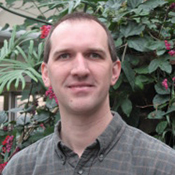
Professor, Department of Botany
E-mail: beewers@uwyo.edu | Web Page
Students: Tim Aston, Trevor Bloom, Bridger Huhn
Alumni: Julia Angstmann, John Frank, Kusum Naithani, David Reed, Heather Speckman
Top of Page
The main question driving Dr. Brent E. Ewers laboratory’s research is how does plant
physiology control fluxes of mass and energy at scales ranging from plant organs to
landscapes. Ongoing projects investigate a wide range of nonvascular, woody and herbaceous
plants inhabiting near-pristine, heavily disturbed, crops and controlled environments.
Brent's lab leads or collaborates on current projects investigating bark beetle-induced
mortality impacts on forest ecosystem processes, influence of vegetation on the hydrological
cycle and the role of genetics in plant responses to stress.
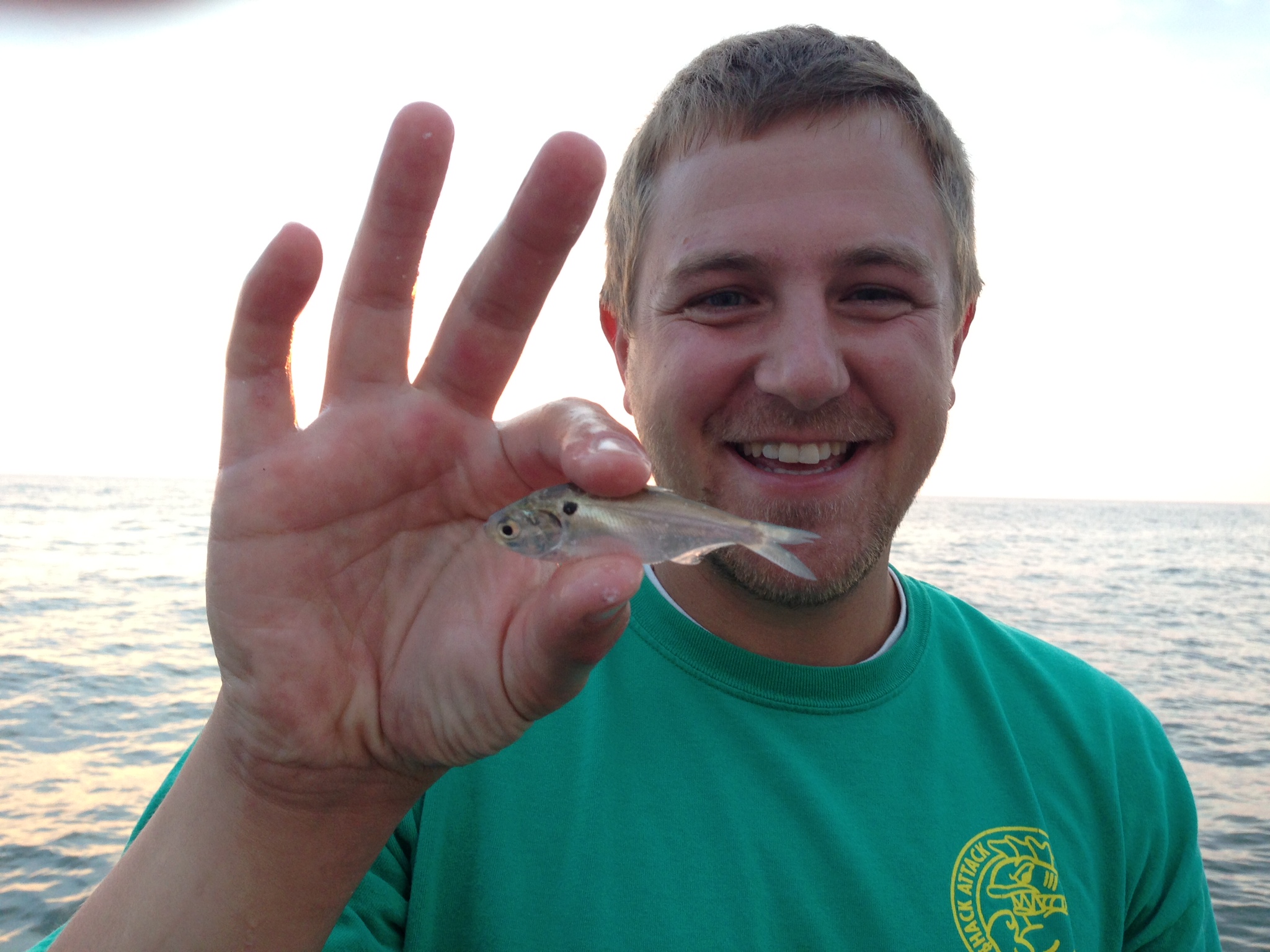
Assistant Professor, Department of Zoology and Physiology
E-mail: wfetzer@uwyo.edu | Web Page
Students: Jordan Brewin, Kaitlyn McKnight
My research interests lie at the interface of basic and applied research and I aim to answer questions directly relevant to the management and conservation of fisheries and freshwater ecosystems. Specifically, I am interested in spatial and temporal responses of aquatic food webs to anthropogenic perturbations, such as climate change, invasive species, and eutrophication. I use multiple approaches and incorporate diverse sources of information to evaluate how direct and indirect drivers interact to drive complex, often unexpected outcomes. To ensure that my science is applicable to conservation, management and policy development, I directly engage and communicate my findings to stakeholders, managers, and policy makers.
My ecological research themes include:Animal, Aquatic, Ecosystems, Isotope Tracers, Organismal, Population and Community

Assistant Professor, Ecosystem Science & Management
Email: tucker.furniss@uwyo.edu | Web Page
Students: Brittany Hays
My research focuses on forests, tree mortality, and disturbance ecology of western landscapes. He uses a combination of field-based longitudinal monitoring, remote sensing, and process-based simulation models to understand how climate, management, and ecological processes are influencing the structure, function, and resilience of forest ecosystems. Tucker is motivated by a deep passion for our western forests and is devoted to producing research that informs science-based management and policy on public lands.

Assistant Professor, Department of Botany
Email: sgermain@uwyo.edu | Web Page
Students: Sheryl Cramer, Jared Friedman, Kelly Goodwin
My research blends dendroecological techniques with community ecology to understand how mechanisms of individual tree survival give rise to forest change, particularly in response to climate and climate-altered disturbance regimes. Currently, my field sites include ForestGEO demography plots in and Grand Teton, WY; Yosemite, CA; Wind River, WA; and Cedar Breaks, UT. Here, I identify proximate causes of tree mortality - including bark beetles, invasive pathogens, and fire - and then integrate these observations with fine-scale maps of forest composition, structure, edaphic features, and measurements of tree anatomical characteristics. This field-based approach lends to an empirical understanding of 1) how forest communities and disturbances are changing, 2) the climatological and environmental conditions structuring that change, and 3) attributes that impart resistance and resilience across individual, population, and community scales. Part of what we're finding is that climate change is contributing to novel interactions between trees, tree enemies, and tree mutualists - many of which are responsible for vast changes in forest cover across the western USA. Whether and at what pace these dynamics are giving rise to permanent ecosystem state changes is a primary research question in my lab.
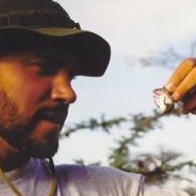
Professor, Department of Zoology and Physiology
E-mail: jgoheen@uwyo.edu | Web Page
Students: Annabella Helman, Leo Khasoha, Dedan Ngatia, Douglas Njeri
Alumni: Abdullahi Ali, Jesse Alston, Brett Jesmer, Dedan Ngatia
Top of Page
My research interests lie at the nexus of conservation biology and community ecology.
Currently, I am devoted to two research programs: 1) examining how the loss of megaherbivores
and other wildlife affects rangeland dynamics in savanna ecosystems through the Ungulate
Herbivory Under Rainfall Uncertainty (UHURU); and 2) investigating the interplay between
community saturation and human disturbances across wildlife assemblages. Graduate
projects in my research group span a breadth of topics, and include precipitation
and herbivory as filters to plant community assembly, foraging efficiency/risk tradeoffs
in herbivores, community- and ecosystem-level consequences of wildlife restoration
in Mozambique, small mammal responses to ungulate extirpations, and landscape change
and conservation of a globally-endangered antelope in northeastern Kenya.
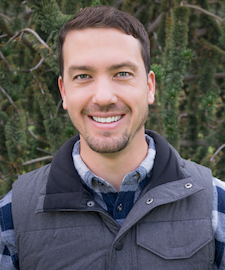
Associate Professor, Haub School of Environment and Natural Resources & Department of Zoology and Physiology
Email: joe.holbrook@uwyo.edu | Web Page
My research focuses on an integration of population and community ecology. Three main questions underpin this focus: (1) Why are animals where they are?, (2) How does environmental change influence animals?, and (3) What roles do animals fulfill within the broader ecological community? In addition, I am keenly interested in the interaction between humans and the environment, which has large implications for policy, land management, and conservation solutions. These broad interests necessarily require diverse partnerships, datasets, and analytical techniques. Indeed, my partners and I are continually looking for ways to integrate concepts and approaches to gain additional insight and identify conservation opportunities. I generally work with mammalian carnivores, which have spanned from jaguarundis and badgers within rangelands to Canada lynx, wolverine, and mountain lions within forests. Applied issues motivate my work, but I strive to place these questions within a strong theoretical foundation to advance both management and science.
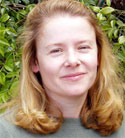
Associate Professor, Department of Ecosystem Science and Management
E-mail: khufford@uwyo.edu | Web Page
The primary focus of my laboratory is the study of the consequences of community and population-level variation for the long-term sustainability of restored plant communities. I am an evolutionary ecologist with interests in conservation and restoration. My research is focused on the adaptation of plant populations to local environments, and the implications of adaptive variation for the restoration of native plant communities. I study spatial and temporal patterns of selection using techniques in field ecology, molecular genetics and bioinformatics. Topics of interest include the spatial scale of local adaptation, and the fitness consequences of intraspecific hybridization among wild plant populations. I am also interested in pursuing questions that link population-level studies to larger geographic scales and trophic interactions.
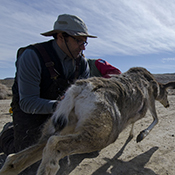
Professor, Department of Zoology and Physiology
Leader, Wyoming Cooperative Fish and Wildlife Research Unit
E-mail: mkauffm1@uwyo.edu | Web Page
Students: Luke Wilde
Alumni: Ellen Aikens, Brett Jesmer, Doug Keinath, Arthur Middleton, Anna Ortega
Top of Page
My research interests range from demography and population dynamics of animal species,
to community-level consequences of herbivory and predation, and landscape ecology
of wildlife populations. A common theme of much of my work is a desire to connect
ecological research with applied conservation issues, particularly regarding animal
populations. Some recent projects have evaluated the management and recovery of peregrine
falcons, the effects of range management on carnivores in southern Africa, the dynamics
of elk populations, and trophic interactions among wolves, elk and aspen. Much of
my current work, and that of my students, is focused on the ecology and management
of Rocky Mountain ungulates and their predators. Nevertheless, interesting ecological
questions that have a bearing on real-world conservation will always capture my interest
regardless of taxa or study system. As the Assistant Unit Leader for Wildlife at the
Wyoming Cooperative Fish and Wildlife Research Unit, my research program also addresses
the priority needs of state and federal wildlife managers. Consequently, students
in my lab often work closely with wildlife managers outside of academia.

Research Scientist, Assistant, Department of Zoology and Physiology
E-mail: patrick.kelley@uwyo.edu | Web Page
Students:
Research Interests: Animal Behavior, Behavioral Ecology, Ecological Statistics.
Research Summary: The Behavioral Complexity Lab is broadly interested in how environments shape individual behavior and how these behaviors impact vulnerability to selective agents (such as climate or predation). Focusing mainly on tropical birds in Panama and Hawaii (but branching out into other taxa such as jumping spiders too), our lab research integrates intensive field-based studies of multiple taxa, quantitative behavioral analysis (especially bioacoustics), physiology (primarily stress hormones), artificial intelligence, and traditional ecological modeling to explore the interplay between natural selection and complex phenotypes. To this end, the lab explores novel ways (causal AI, deep-learning) to detect and measure complex behaviors that form the basis of fundamental ecological phenomena such as competition and predation.
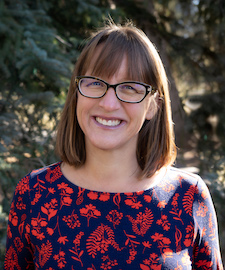
Associate Professor, Environment and Society
Center for Climate, Water, and People
Haub School of Environment and Natural Resources
Email: corrie.knapp@uwyo.edu | Web Page
Students:
My research interests are at the confluence of climate change, conservation & livelihoods. Using a social-ecological approach, she works in climate change adaptation, local and indigenous knowledge, sense of place, and conservation innovation. She has a deep commitment and passion for Western landscapes, rangelands, and the human and ecological communities that depend on them.
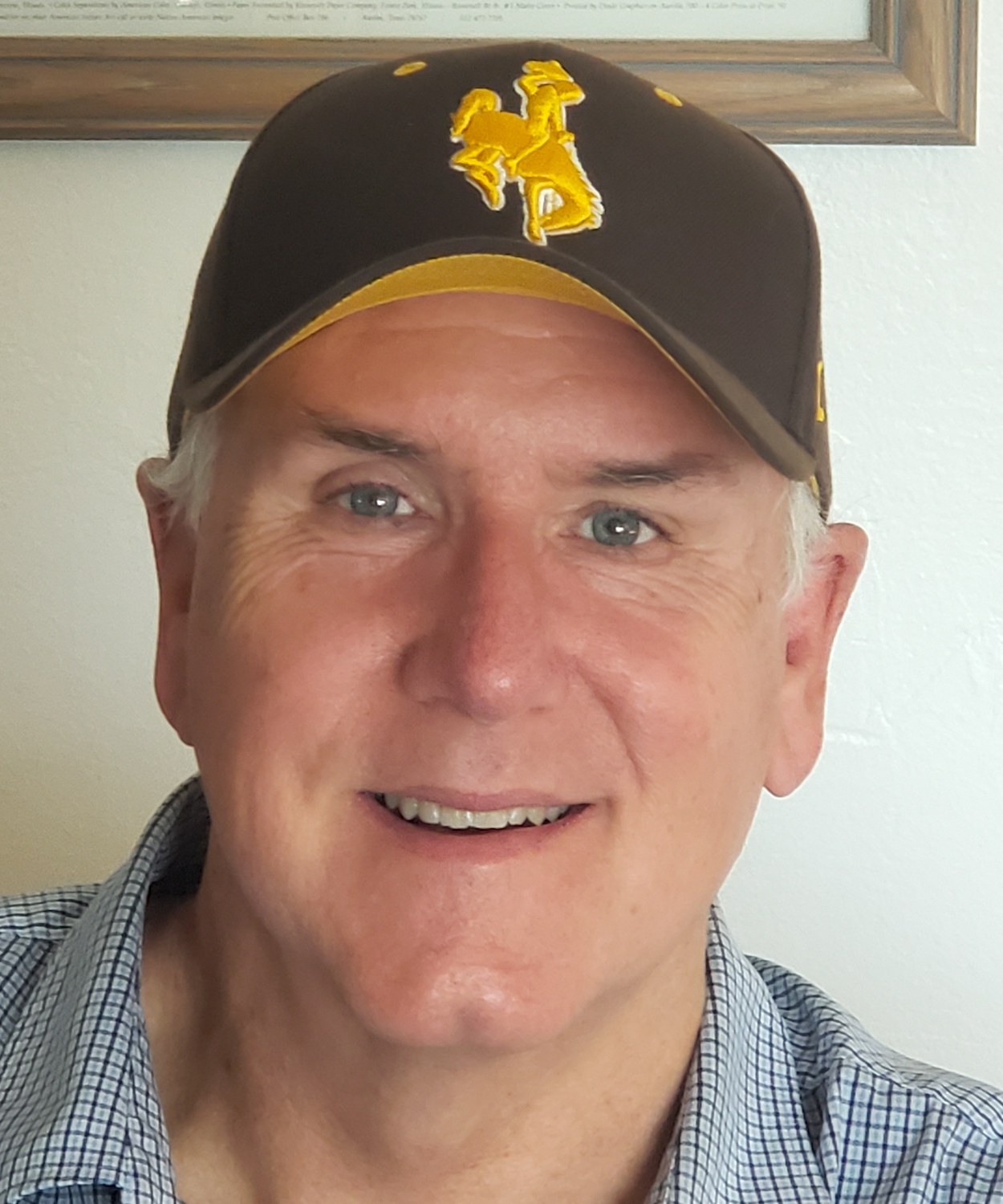
Professor, Haub School of Environment & Natural Resources
Email: jkoprows@uwyo.edu | Web Page
Students:
Dr. Koprowski’s research program has focused on the ecology, conservation, and management of biodiversity through community based approaches in the United States, Mexico, Peru, Colombia, Nepal, China, Mongolia, South Africa, and numerous other international locations. With more than 180 peer-reviewed articles and books, John and his nearly 50 graduate students have worked to provide data-informed solutions to conservation challenges. His efforts in wildlife conservation have led to his election as a Fellow of the American Association for the Advancement of Science, The Wildlife Society, and the Linnean Society of London.

Associate Professor, Department of Zoology and Physiology
E-mail: krist@uwyo.edu | Web Page
Students: Spencer Cruz
Alumni: Michele Larson
Top of Page
In my research, I seek to develop our understanding of host-parasite relationships
and the biology of invasions in an ecological and evolutionary context. For example,
I study the role of ecological stoichiometry in the success of the non-native New
Zealand mud snail and the ecological and evolutionary consequences of the introduction
of lake trout to zooplankton in Yellowstone Lake. Using snail- trematode interactions,
I also study the consequences of parasitism to the evolution of host-life histories
and how varying the stoichiometry of food alters the outcome of snail-trematode interactions.
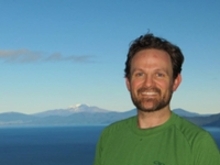
Professor, Department of Botany
Email: daniel.laughlin@uwyo.edu | Web Page
Students: David Atkins, Jesse Fleri, Hailey Mount
Alumni: Alice Stears
The Laughlin research lab develops quantitative approaches to understand and predict how plant communities respond to global change. We develop trait-based models that translate ecological processes into statistical frameworks to predict how communities assemble along environmental gradients and how species interact at local scales. The goal for these models is not only to gain a deeper understanding of basic ecological processes, but also to inform the restoration of degraded ecosystems.
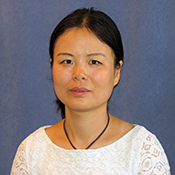
Professor, Departments of Mathematics and Zoology and Physiology
E-mail: rliu1@uwyo.edu
My research interests are mathematical biology, differential equations, dynamical
systems, and their interface. My research projects involve formulation, analysis and
applications of deterministic mathematical models for infectious diseases and ecological
systems. The models are aimed to answer questions and help gain useful insights for
the biological systems being investigated. Based on the theoretical analysis and numerical
simulations, we describe useful quantitative behaviors of model solutions and tackle
which factors are most important in determining these behaviors. Together with collaborating
biologists, we provide biological interpretations of the mathematical results, as
insights and predictions. From time to time, we need to develop new or improve existing
mathematical theories and techniques to provide satisfactory solutions to questions
posed by collaborating biologists.
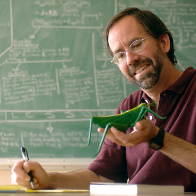
Professor, Department of Philosophy
Director, Master's in Fine Arts program
E-mail: lockwood@uwyo.edu | Web Page
Alumni: Christa Cooper Sumner
Top of Page
I conduct research that focuses on studies, analyses, explorations, syntheses, critiques,
and expressions of the interface between natural sciences and the humanities/arts.
This work includes, but is not limited to, philosophy and creative writing. My studies
in philosophy pertain to environmental and natural resource ethics, as well as environmental
justice. My efforts in writing are primarily in the genre of creative non-fiction
and nature writing, including book-length works, essays, and shorter pieces. I also
pursue scholarly studies at the interface between religion and the natural sciences,
with a focus on the transcendental tradition, intellectual pluralism/pragmatism, and
panentheistic perspectives.
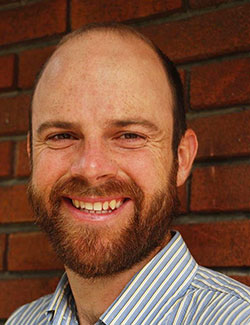
Associate Professor, Department of Zoology and Physiology
Email:jmerkle@uwyo.edu | Web Page
Students: Molly Caldwell, Anne Scholle, Tana Verzuh
I am a quantitative wildlife ecologist with broad interests in understanding how the movement of animals relates to environmental heterogeneity and change, and how these interactions scale to population- and landscape-level ecological processes. My specific research foci include movement and migration ecology, fitness consequences of behavior, how cognition and innovation influence foraging behavior, and conservation and management of large mammals.
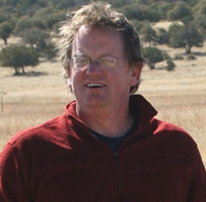
Professor, Department of Geology & Geophysics
Email:minckley@uwyo.edu | Web Page
Students: Jonathan Bowler
My interests lie in how ecosystems have responded to past climate changes. I am a paleoecologist who works primarily on arid and semi-arid ecosystems (deserts to forests) in western North America and how those ecosystems respond to prolonged climate change like drought and to short-term disturbances like floods and fires. The primary tool I use for analyzing past ecosystem dynamics is pollen, macrobotanical remains and charcoal deposited on and contained within lake and wetland sediments. My lab currently has projects looking at the interactions between climate forcing and changes in stable states of desert wetland and grassland. I am investigating the resilience of western forests to prolonged drought (century to millennial scale) that may be coupled with changes in fire-regimes as possible analogs to future forest dynamics under climate change scenarios.
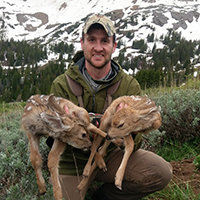
Professor, Haub School of Environment and Natural Resources and Department of Zoology
and Physiology
Wyoming Cooperative Fish and Wildlife Research Unit
Email: kevin.monteith@uwyo.edu | Web Page
Alumni: Ellen Aikens, Tayler LaSharr, Rachel Smiley
My research program is focused on integrating nutritional ecology with intensive field studies of large ungulates to elucidate the mechanisms that underpin behavior, growth, reproductive allocation, predator-prey dynamics, and ultimately, the factors affecting population growth. My graduate students and I are currently conducting research on most of Wyoming’s large ungulates; topics are centered on establishing a protocol for habitat-based, sustainable management of ungulate populations, while investigating the effects of predation, habitat alteration, climate change, migration tactics, and novel disturbance through the lens of nutrition.
Director, Program in Ecology
Professor, Department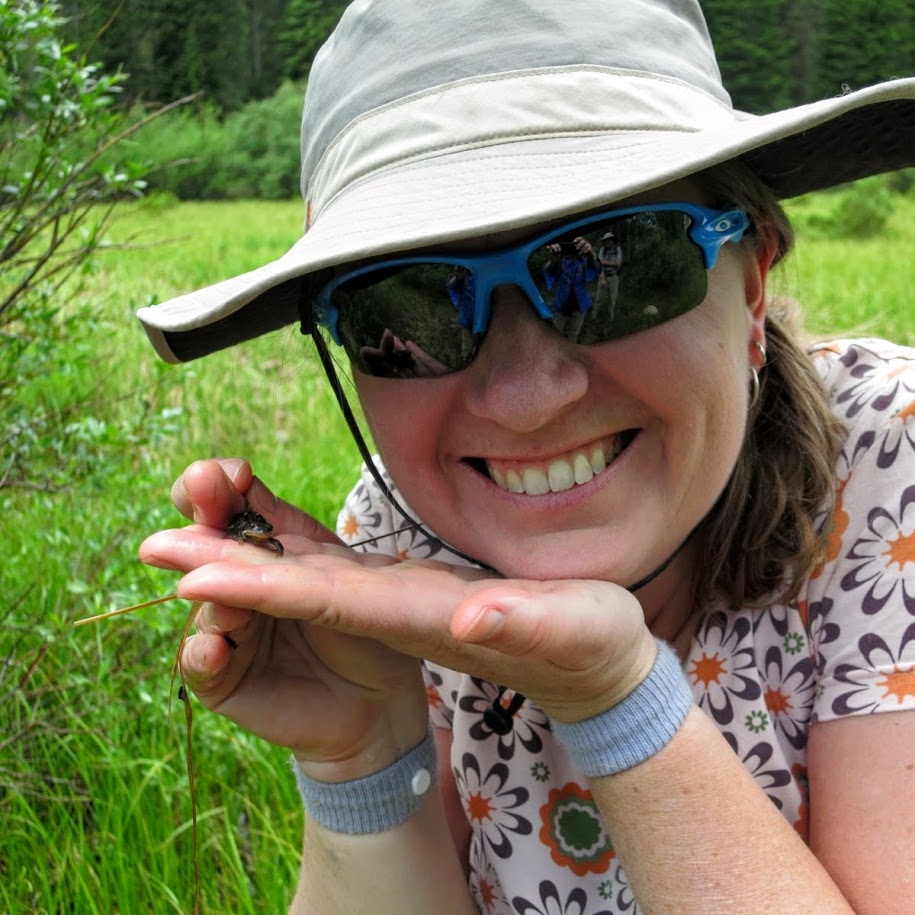 of Ecosystem Science and Management, Ag C 2027
of Ecosystem Science and Management, Ag C 2027
E-mail:melanie.murphy@uwyo.edu | Web Page
Students: Rachel Arrick, Kathryn Davis, Beth Fitzpatrick, Melanie Torres
Alumni: Charlotte Gabrielson
My research program is focused on addressing applied questions of ecological complexity
at landscape scales utilizing tools from landscape ecology and population genetics.
The goal of my research is to address complex ecosystem dynamics, focusing on biodiversity
(distribution and abundance) and functional connectivity in areas of management and
conservation concern. My objective is to incorporate ecological research and alternative
management scenarios to assess sustainability. While most of my current work focuses
on amphibians and related ecological systems, I have experience with a broad range
of taxonomic groups and their related ecological systems: carnivores, ungulates, small
mammals, birds, and a coniferous plant. I expect build a research program addressing
a broad range of taxonomic groups with a focus on rangeland systems. I have three
major interrelated areas of research: 1) Ecosystem Biodiversity - ecological and anthropogenic
processes and how they constrain species distributions, 2) Functional Connectivity
- system connectivity and how it limits population persistence, and 3) Landscape Change
- impact of alternative future landscape conditions on ecosystem sustainability.

Assistant Professor, Department of Zoology and Physiology
Email: anelso74@uwyo.edu | Web Page
Students:
Research Interests: Neural circuits | social interaction | group behavior | sensory biology.
Our goal is to understand how behavioral responses are made possible by neural circuits integrating inputs from internal states and sensory cues. We study various strains of mice in a naturalistic social context, and use a variety of molecular, genetic, and computational tools to address how organization in social interaction arises.
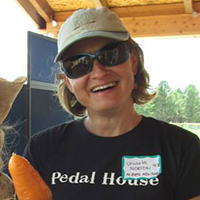
Professor, Department of Plant Sciences
E-mail: unorton@uwyo.edu | Web Page
Students:
Alumni: Liana Boggs Lynch, Chloe Mattilio
Top of Page
My research lies within the areas of both basic and applied science, concentrating
on questions formed to evaluate the impact of anthropogenic or chronic disturbances
on ecological underpinnings of ecosystem resiliency and sustainability. As a biogeochemist
I am drawn toward understanding the linkages between belowground N and C cycling and
ecosystem functions. I am interested in agroecological principles governing sustainable
food production in time of diminishing natural resources and environmental change
and the short and long-term consequences of climate variability on ecosystems services.
In my research approach I investigate a variety of soil, air and plant indices that
are most sensitive to environmental change such as greenhouse gas (GHG) emissions
(carbon dioxide, methane and nitrous oxide) and labile and stable organic matter pools.
Methodologies I often employ include GHG measurements, assays for determining potentially
mineralizable C and N, and gross rates of mineralization using 15N enrichment techniques.
I am currently involved in the following projects: (1) Quantifying the impact of a
massive bark beetle outbreak on carbon, water and nutrient cycling and regeneration
of southern Wyoming lodgepole pine forests; (2) Development and transfer of conservation
agriculture production systems for small-holder farms in eastern Uganda and western
Kenya; (3) Effects of cropping-system, irrigation method, and soil properties on soil
nitrogen and organic matter dynamics in the Big Horn Basin; and, (4) Economic and
environmental sustainability of conventional, reduced-input, and organic approaches
on western crop-range-livestock farms.
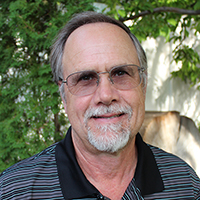
Professor, Department of Zoology and Physiology
E-mail: frahel@uwyo.edu | Web Page
Alumni: Eriek Hansen, Bryan Maitland, Mark KirkDan Gibson-Reinemer
Top of Page
My research involves fish ecology with a particular focus on streams, habitat relationships,
and landscape ecology. My graduate students and I are addressing issues of fish habitat
use and movement patterns in regards to both large spatial scales and patchiness.
We are interested in what constitutes a habitat patch, how patches are rearranged
by disturbances such as floods, and what factors influence fish movement among patches.
Another area of interest is the homogenization of aquatic biota across the world through
habitat alteration and species introductions. Much of our research involves species
of conservation concern including native trout and nongame fishes such as native minnows
in prairie streams. One of our current projects in this area involves the role of
irrigation canals as a population sink for cutthroat trout.
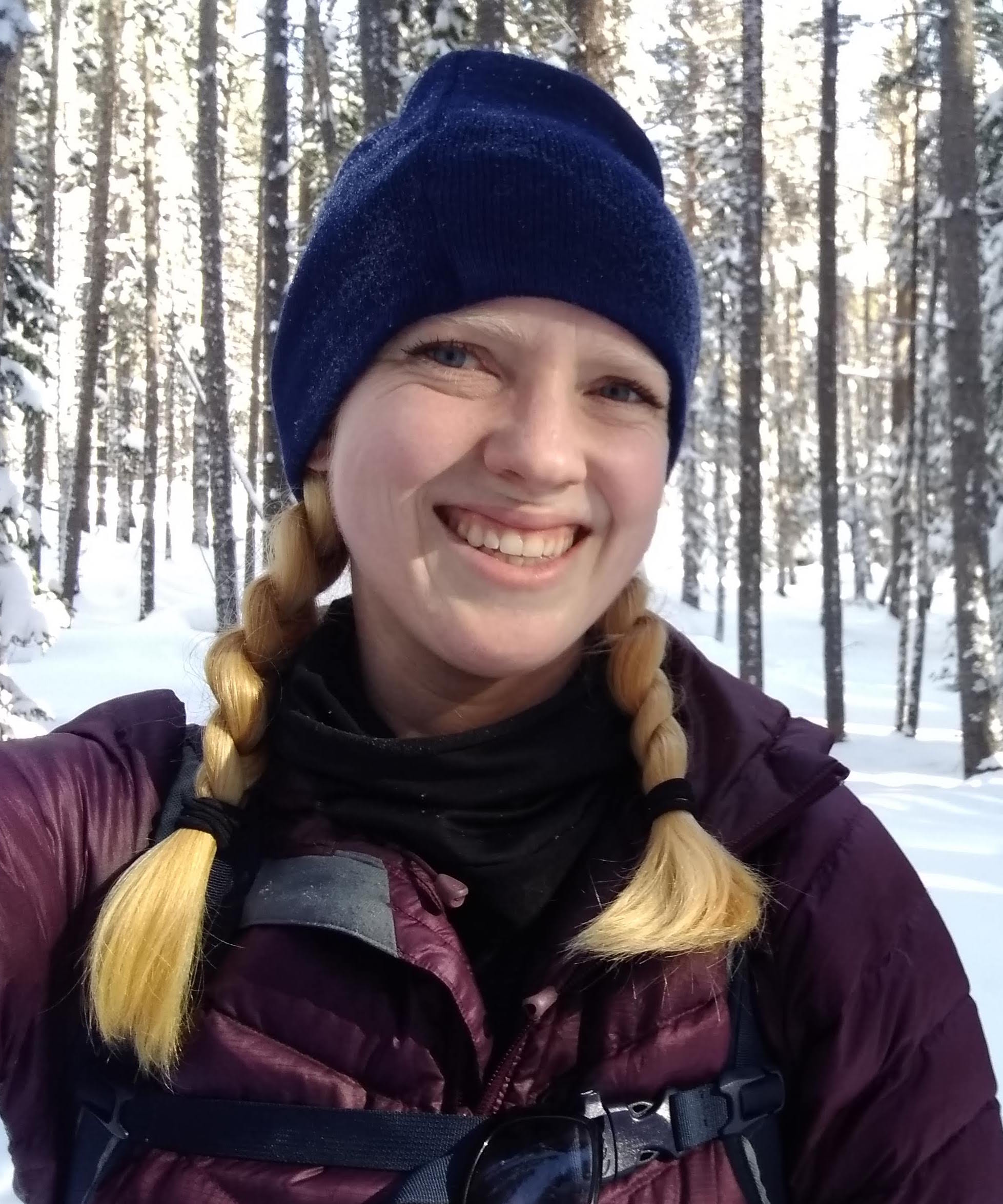
Assistant Professor, Botany Department
E-mail: lshoema1@uwyo.edu
Students: Janette Davidson, Kaitlyn McKnight, Megan Szojka
Top of Page
I am a community ecologist interested in understanding patterns in diversity across
space and time. In my research, I combine complex systems science and mathematical
models with experimental tests of theory. My research focuses on understanding (1)
how spatio-temporal variability promotes coexistence and species diversity, (2) the
processes that create spatial patterning across landscapes, and (3) linking patterns
of population and community synchrony to underlying mechanisms.
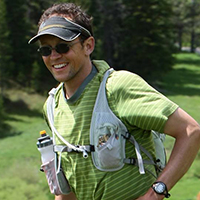
Professor, Department of Geology and Geophysics
E-mail: bshuman@uwyo.edu | Web Page
Students: Jordan Von Eggers
Alumni: John Calder
Top of Page
My research focuses on long-term changes in the availability of water, and how these
changes shape ecosystem composition, pattern, and process. In particular, I have been
using geologic evidence to study how the water levels of lakes in North America have
changed over centuries to millennia during the past 15,000 years, and am comparing
these records of past moisture levels with fossil and geochemical evidence of past
vegetation, disturbances, and other ecosystem phenomena. In doing so, I seek to understand
how ecosystems from the landscape- to continental-scale respond to climate change.
By comparing lake-level data from across the continent, I am also examining the climatic
processes that cause moisture fluctuations through time. Students working with me
have worked on 1) paleoclimate reconstruction and diagnosing the causes of past climate
changes, 2) vegetation and fire history reconstruction and examining the role of disturbance
(fire) for mediating vegetation responses to climate change, 3) spatially-explicit
landscape modeling of past ecosystem changes, and 4) improving our understanding of
the sedimentary and geochemical record of past environmental change.
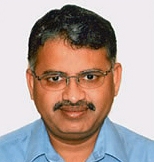 Ramesh Sivanpillai
Ramesh SivanpillaiResearch Scientist, Departments of Botany and Ecosystem Science and Management
Wyoming Geographic Information Sciences Center
Email: Sivan@uwyo.edu | Web Page
My research focuses on mapping vegetation types and monitoring vegetation condition and land cover change using remotely sensed data. Most of my work uses multispectral data collected from satellite and airborne platforms. Study areas range from small agricultural fields to large river deltas. Working with remotely sensed data acquired at different spatial and spectral resolutions enables me to assess the effect of scale or grain size on mapping vegetation and other earth surface features. My research sites are located in US (Wyoming and Texas), India, Uzbekistan, Kazakhstan, Russia, Mexico, Honduras and Nicaragua.
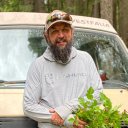
Professor, Department of Botany
Director of Rocky Mountain Herbarium
Email:dtank@uwyo.edu | Web Page
Students: Erin Bentley, Caroline Brose, Malia Santos
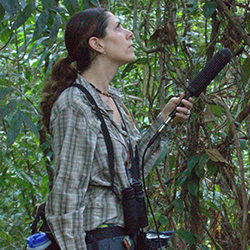
Associate Professor, Department of Zoology & Physiology and UW Biodiversity Institute
E-mail: corey.tarwater@uwyo.edu
Students: Mary De Aquino
Alumni: Samuel Case, Rebecca Wilcox
My research interests are broadly focused on the links between ecology, evolution, and behavior of year-round resident birds and using individual-based studies to understand variation in individual fitness and population demography. Current projects include: 1) effects of rainfall and fragmentation on demography in an understory insectivore in Panama, 2) the role of individual and environmental variation on juvenile behaviors, recruitment, and demography of birds in central Panama, 3) the role of invasive birds and rats in seed dispersal of native and nonnative plants in Hawaii, and 4) life history trade-offs and the link between personalities and life histories using a long-term study of song sparrows in British Columbia.
Hawaii VINE project - https://www.facebook.com/hawaii.vine.project
Econeotropica project - https://www.facebook.com/econeotropica
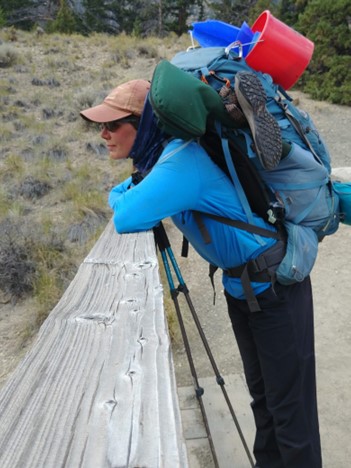
Lead Invertebrate Zoologist, Wyoming Natural Diversity Database
Email: tronstad@uwyo.edu
Student: Isabella Sadler
Webpages:https://www.uwyo.edu/wyndd/about-wyndd/staff/lusha-tronstad.html,
https://www.uwyo.edu/wyndd/about-wyndd/programs/invertebrates.html,
https://tinyurl.com/TetonStreams,
https://www.researchgate.net/profile/Lusha-Tronstad
Most of my research focuses on rare or imperiled invertebrates with a focus on aquatic invertebrates and pollinating insects. I also have expertise in population, community and ecosystem ecology. I love studying a variety of organisms such as investigating how plants and animals alter ecosystem fluxes, and interactions between plants and pollinators. Examples of projects my laboratory group studies include how a rare, endemic beetle survives in harsh water quality, interactions between insects and wind facilities, nutrient dynamics in Yellowstone Lake while suppressing invasive lake trout, using aquatic invertebrates to assess ecosystem quality, limiting factors throughout the lifecycle of mussels, parasitism in bumble bees, the role rare plants play in pollination networks, changes in ice phenology under a changing climate and best methods to monitor rare pollinators. I use a variety of tools including isotopes, nutrients, statistics, modeling, mark recapture and others. The research that we do collects information that can be used by managers to make informed decisions.
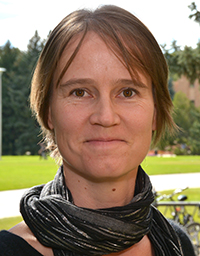 Linda van Diepen
Linda van DiepenAssociate Professor, Department of Ecosystem Science and Management
Email: linda.vandiepen@uwyo.edu | Web Page
Students:
Alumni: Gordon Custer, Liana Boggs Lynch
My research interests lie in the field of ecosystem science with a focus on the role of the soil microbial community in biogeochemical processes such as nutrient and carbon cycling. I am interested in understanding the responses of an ecosystem to various disturbances and how soil processes and plant-microbe interactions mutually control these ecosystem responses.
Some examples of my work within Wyoming are: 1) the role of soil microorganisms in restoration of forests after wildfire, 2) the role of microorganisms in soil remediation of contaminated mine lands, 3) microbial interactions with invasive plant species (e.g., cheatgrass), and 4) effects of forest pathogens on soil microbial community dynamics.

Associate Professor, Department of Botany and UW Biodiversity Institute
Email: cwagne22@uwyo.edu | Web Page
Students: William Rosenthal, Andrew Suchomel
Alumni: Jimena Golcher-Benavides, Jessica Rick
I am an evolutionary biologist with broad interests in processes of speciation and diversification. My research uses population genetic, genomic, phylogenetic, and comparative methods to study diversification, from speciation processes to macroevolutionary patterns of biodiversity.
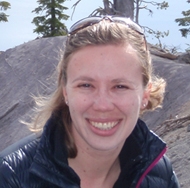
Associate Professor, Department of Zoology/Physiology
Wyoming Cooperative Fish & Wildlife Research Unit
Email: awalter8@uwyo.edu | Web Page
Students: Jeff Baldock, Niall Clancy, Meredith Journey, Ashleigh Pilkerton, Isabella Sadler
Alumni: Gabe Barrile, Richard Walker
I am interested in the resistance and resilience of aquatic communities to disturbance. My research addresses disturbances (e.g., flow alteration, climate change, nutrient loading, and energy development) that are relevant to the conservation and management of aquatic ecosystems through a combination of field observation, experimentation, and modeling. Much of my current research involves fish that are of conservation concern and is set in a management context. My goal is to conduct research that has relevance to both basic ecological theory and fisheries management.

Professor, Departments of Botany and Molecular Biology
E-mail: cweinig@uwyo.edu
Students: Allessandra Ceretto, Robby McMinn
Alumni: Charley Hubbard, Matthew Rubin, Yulia Yarkhunova
The majority of variation segregating in natural populations is quantitative, and
its expression depends on genetic background, environment, and interactions with these
two factors. Traditionally, the evolution of quantitative traits has been described
using statistical genetic techniques. However, one of the greatest advantages of these
approaches is also one of their primary limitations: it is possible to estimate genetic
variation and covariation in traits without any direct knowledge of the underlying
loci or molecular genetic details. In like fashion, it is possible to estimate the
pattern of natural selection on quantitative traits in the absence of knowledge of
loci that determine fitness. Advances in collecting and analyzing molecular data promise
to reveal the molecular genetic basis of quantitative trait variation. In our lab,
we focus on understanding genetic mechanisms of adaptation to competition, the role
of the circadian clock in competitive responses and in adaptation to seasonal settings,
and the genetic basis of quantitative variation in floral morphology. In sum, our
work spans the fields of ecology, evolution, and genetics.
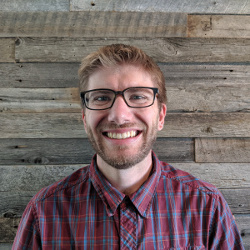
Assistant Professor, Department of Botany
E-mail: cweissle@uwyo.edu
Students: Qingyu Gan, Spencer Holtz
Research in my lab broadly focuses on the eco-evolutionary dynamics of global change. In recent decades, scientists have begun to better understand both the magnitude of changes humans are imposing on the planet and the capacity of populations to evolve rapidly in response to novel selection pressures. I am particularly interested in the spatial dynamics of these phenomena, such as range expansions (as with invasive species) or range shifts due to climate change. Research in the lab combines theoretical models with laboratory experiments using the red flour beetle (Tribolium castaneum), a classic model organism for both ecology and evolution. Using this approach, we aim to better understand how rapid evolution might affect species’ responses to global change, and thus inform future conservation efforts.
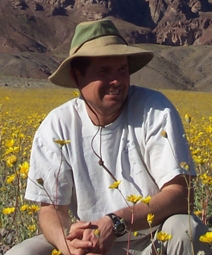
Professor, Department of Botany
E-mail: dgw@uwyo.edu | Web Page
Students: Emmanuel Komolafe, Yasaman Shakeri
Alumni: Janet Chen, Jiemin Guo, Abigail Hoffman
The Williams lab investigates plant-environment interactions in terrestrial environments of the world with particular focus on savannas, grasslands and deserts. Student and postdoc research addresses the role of plants in water, carbon and nitrogen cycle processes from cellular to ecosystem scales, and from daily to inter-annual timescales. Major research questions address the potential responses of water-limited ecosystems to changes in climate, atmospheric chemistry and vegetation composition.
 William L. Baker
William L. BakerProfessor Emeritus, Department of Geography
Alumni: Mark Williams
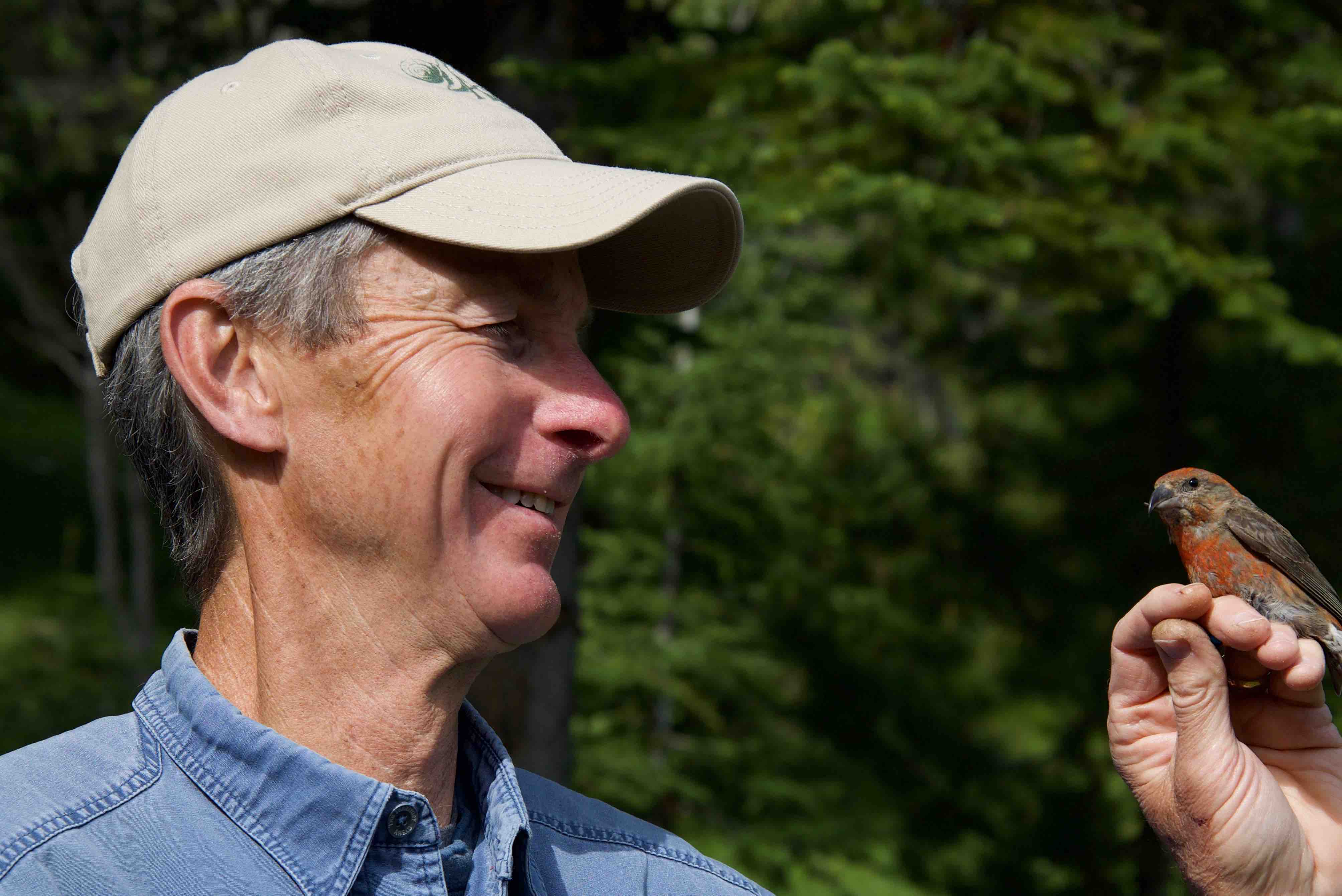
Professor Emeritus, Department of Zoology and Physiology
Alumni: Adam Siepielski, Matt Talluto, Cody Porter
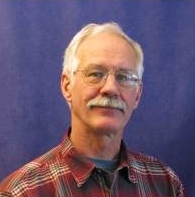
Professor Emeritus, Department of Zoology and Physiology
Alumni: Emiliano Donadio, Jonathan Pauli, Arthur Middleton
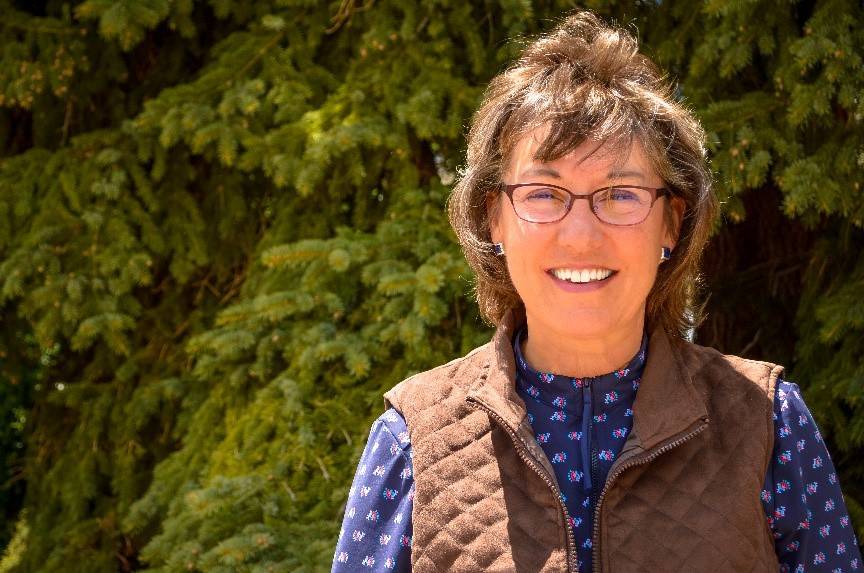
Professor Emeritus, University of California Davis, School of Veterinary Medicine
Professor Emeritus, University of Wyoming, Dept of Veterinary Sciences
Wildlife Genomics and Disease Ecology, Certified Senior Ecologist, Ecological Society
of America, www.wildlifegenetichealth.org.
Email: Holly.Ernest@uwyo.edu, hbernest@ucdavis.edu
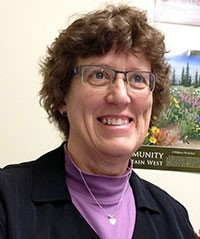
Professor Emeritus, Department of Ecosystem Science and Management
Email: annhild@uwyo.edu
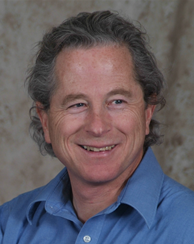
Professor Emeritus, Department of Botany
Alumni: Mark Lesser, Rachel Jones, Yao Liu
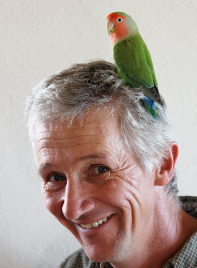
Professor Emeritus, Department of Zoology and Physiology
Alumni: Mikey Tabak
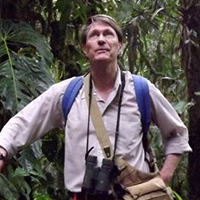
Professor Emeritus, Department of Zoology and Physiology
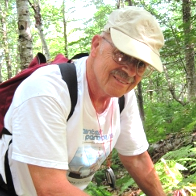
Professor Emeritus, Department of Botany
Alumni: Jason Edwards
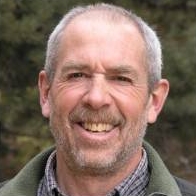
Professor Emeritus, Department of Ecosystem Science and Management
Director, Wyoming Reclamation and Restoration Center
Alumni: Caley Gasch, Ramesh Sapkota, Michael Curran
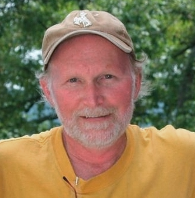
Associate Professor Emeritus, Department of Botany, Ecosystem Science and Management, Environment and Natural Resources
Alumni: David McKenzie, Paige Copenhaver Parry, Kellen Nelson
Program in Ecology and Evolution
Interdisciplinary Program
Debbie Swierczek, Program Coordinator
School of Graduate Education
Knight Hall 247
Phone: 307-766-4128
Email: ecology@uwyo.edu